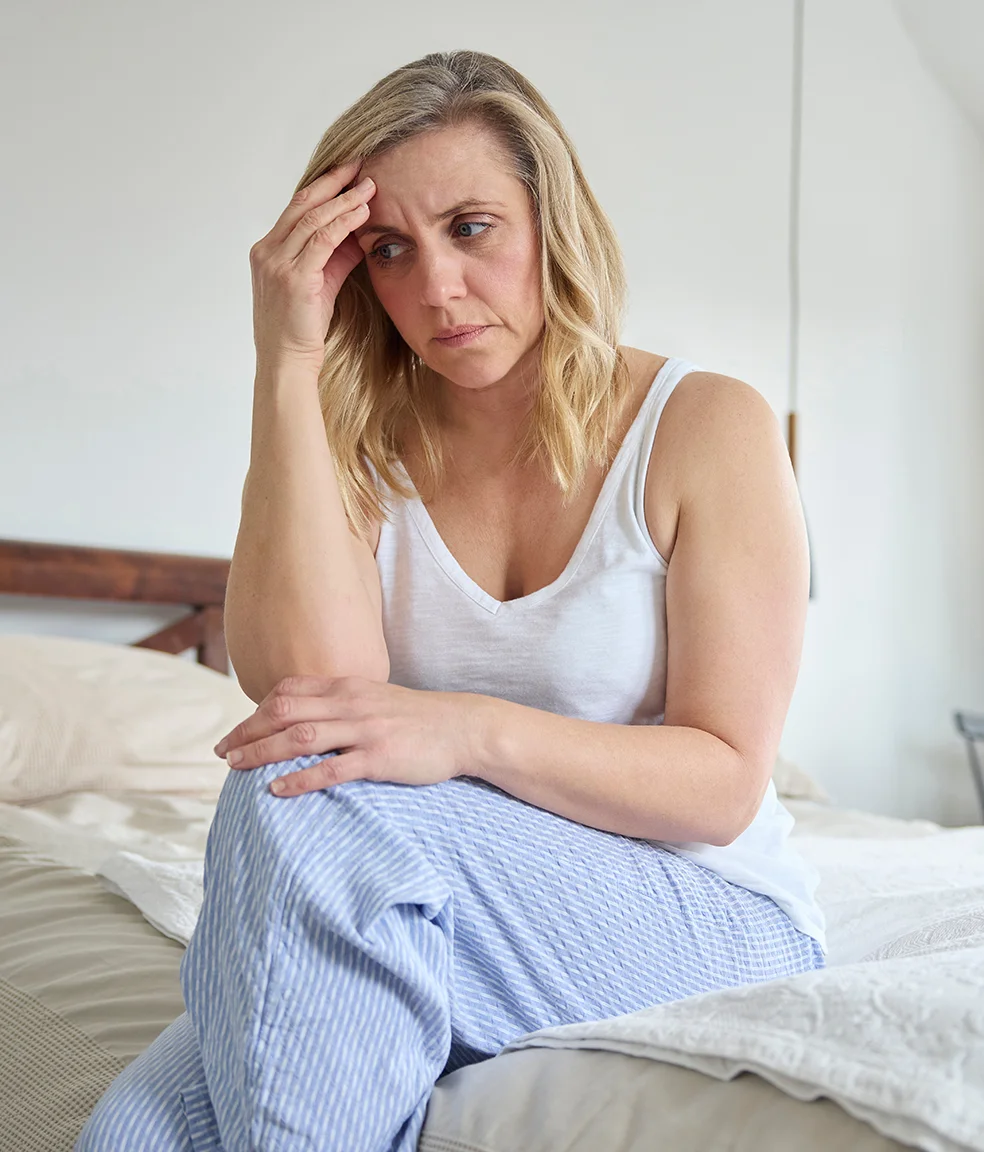Advanced Medical and Weight Loss Center
Bioidentical Hormone Replacement Therapy
Hormone Replacement Therapy in Alpharetta, GA

Hormone Replacement Therapy in Alpharetta
Are you wondering if hormone replacement might be right for you because you’re feeling constantly sluggish and gaining weight, despite no changes to your diet or exercise?
Are you still not feeling your best, even though your doctor has already put you on hormone replacement?
Or perhaps you’re unsure and hesitant about hormone replacement, worried about potential side effects?
For women dealing with menopausal hormone deficiencies, we often find that hormone replacement therapy can lead to significant improvements in how they feel.
It’s important to understand that there are various approaches to hormone replacement therapy.
Here's How We Do It
We begin by measuring your hormone levels to identify any deficiencies. Our goal is to replace only the hormones you’re lacking, restoring balance to your body.
We use bio-identical hormones, which are an exact match to the hormones your body naturally produced. These are available in FDA-approved forms from standard pharmacies or as custom preparations from a compounding pharmacy.
Throughout the process, we carefully monitor your progress to ensure your symptoms improve without unwanted side effects.
Finally, we re-check your hormone levels to confirm that everything is correctly balanced.

What Are Bioidentical Hormones?
The term “bio-identical” refers to hormones that are an exact match to those naturally produced by your body. In theory, your body can’t tell the difference between a hormone it makes and one provided by a pharmacy.
Bio-identical hormones are derived from soy or yam ingredients. In a lab, they are converted into estrogen, progesterone, or testosterone, resulting in a product identical to what your ovaries produce.
Simply eating soy or using yam cream won’t have the same effect.
This is quite different from synthetic hormones, which are man-made chemicals designed to mimic hormones but are not an exact match. As a result, the risks and benefits differ, and there are no lab tests to accurately measure synthetic hormone levels in your body.
What is Menopause?
Menopause marks the stage in a woman’s life when her ovaries cease producing estrogen and progesterone. You are considered menopausal after going an entire year without a period. While this typically happens around age 52, it can occur earlier or later.
Common symptoms may include:
- hot flashes
- depressed mood
- fatigue
- insomnia
- low libido
- vaginal dryness
- painful sex
- poor memory
- irritability
- dry skin
- dry eyes
- thin or aging skin, including wrinkles
- weight gain
What is Perimenopause?
As a woman nears menopause, her hormone levels can fluctuate significantly, leading to a variety of symptoms. Some women may start experiencing these symptoms as early as 10 to 15 years before menopause, making it difficult to identify hormones as the underlying issue.
Common symptoms of perimenopause include:
- night sweats
- mood swings
- anxiety
- irritability
- waking up in the night
- worse PMS symptoms (like breast tenderness, fluid retention and bloating)
- longer PMS (lasting 1-2 weeks instead of just 1-2 days)
- heavier periods
- irregular periods or more frequent periods
- premenstrual spotting
- weight gain
What Can Be Done?
Bioidentical hormone replacement therapy offers relief from symptoms associated with menopause and perimenopause.
There are various options for bioidentical hormone replacement therapy, including:
- pills
- topical creams
- patches
- vaginal creams or suppositories
- sublingual lozenges (called troches)
- pellets inserted under the skin
Are Hormones Safe?
While there are risks and benefits to all treatments, for most women, especially those within 5-10 years of menopause, the benefits of hormone replacement therapy greatly outweigh the risks.
If estrogen replacement isn’t right for you or if you prefer to avoid menopausal hormone therapy, it’s still crucial to maintain balance in other hormones like cortisol, thyroid, and insulin, as they play a vital role in overall health.
Functional Medicine Is Our Specialty
What We Treat
Chronic Fatigue
Hormonal Imbalances
Digestive Issues
Sleep Disturbances
Autoimmune Diseases
Chronic Pain
Weight Struggles
Anxiety & Depression
Thyroid Disorders
Skin Conditions
Are You Ready To Finally Feel Better?
Have you been told that everything “looks normal” but you still don’t feel like yourself? It’s time to find out why. Take the first step on your journey to optimal health.
Quick Links
Our Services
Contact Info
- 5755 North Point Pkwy UNIT 32, Alpharetta, GA 30022
- (770) 467-3975
All information presented on this website is intended for informational purposes only and not for the purpose of rendering medical advice. The information contained herein is not intended to diagnose, treat, cure, or prevent any disease.
Copyright © 2025 Sidcorp LLC Advanced Medical Weight Loss Center. All Rights Reserved
